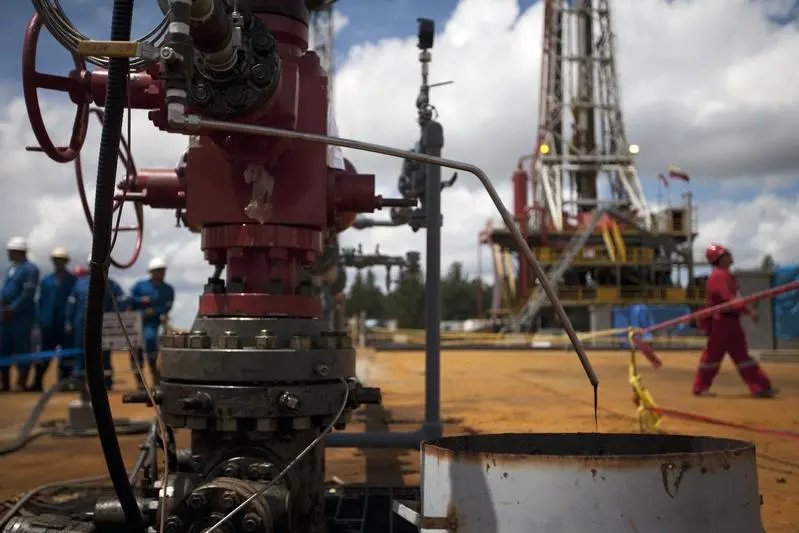PHOTO
SINGAPORE - Global oil demand may be between 2 million to 4 million barrels per day (bpd) more than worldwide crude supply by the end of 2019 as exploration spending has declined as prices fell, an executive with commodities trading house Trafigura said on Tuesday.
The mismatch in supply and demand is the result of a decline in spending to find new oil and gas reserves and as existing wells, especially new wells from shale formations, are naturally used up, said Ben Luckock, Trafigura's co-head of group market risk, at an industry conference in Singapore.
Benchmark Brent crude oil prices collapsed to as low as $27.10 a barrel in January 2016 from as much as $115.71 in June 2014. Prices have rebounded since then to over $59. The steep decline in revenue as prices dropped caused companies to cut their exploration budgets.
Luckock pointed to a drop in exploration spending in 2016 to about $300 billion from $700 billion two years earlier as a reason supply will eventually fall below demand.
"When we count up the barrels across the next couple of years, we are coming up short," he said. "As prices plummeted, so did upstream spending."
The decline in spending coincides with rising output from wells drilled into shale rock formations in the United States that tend to reach peak production faster than traditional oil wells.
"The nature of oil reservoirs is that they deplete, and shale reservoirs deplete even faster than the average. That means you need to replace something in the order of 9 million barrels per day over the next two years," Luckock added.
A productivity decline in drilling rigs in the Eagle Ford and Permian basins in the U.S. point to faltering shale oil production levels, he added.
Global oil supply was 97 million bpd during the second quarter of this year while demand was 97.9 million bpd, the International Energy Agency said in its latest oil market report.
(Reporting by Mark Tay; Editing by Christian Schmollinger) ((Mark.Tay@thomsonreuters.com; +65 6870 3347; Reuters Messaging: mark.tay.thomsonreuters.com@reuters.net))
The mismatch in supply and demand is the result of a decline in spending to find new oil and gas reserves and as existing wells, especially new wells from shale formations, are naturally used up, said Ben Luckock, Trafigura's co-head of group market risk, at an industry conference in Singapore.
Benchmark Brent crude oil prices collapsed to as low as $27.10 a barrel in January 2016 from as much as $115.71 in June 2014. Prices have rebounded since then to over $59. The steep decline in revenue as prices dropped caused companies to cut their exploration budgets.
Luckock pointed to a drop in exploration spending in 2016 to about $300 billion from $700 billion two years earlier as a reason supply will eventually fall below demand.
"When we count up the barrels across the next couple of years, we are coming up short," he said. "As prices plummeted, so did upstream spending."
The decline in spending coincides with rising output from wells drilled into shale rock formations in the United States that tend to reach peak production faster than traditional oil wells.
"The nature of oil reservoirs is that they deplete, and shale reservoirs deplete even faster than the average. That means you need to replace something in the order of 9 million barrels per day over the next two years," Luckock added.
A productivity decline in drilling rigs in the Eagle Ford and Permian basins in the U.S. point to faltering shale oil production levels, he added.
Global oil supply was 97 million bpd during the second quarter of this year while demand was 97.9 million bpd, the International Energy Agency said in its latest oil market report.
(Reporting by Mark Tay; Editing by Christian Schmollinger) ((Mark.Tay@thomsonreuters.com; +65 6870 3347; Reuters Messaging: mark.tay.thomsonreuters.com@reuters.net))





















